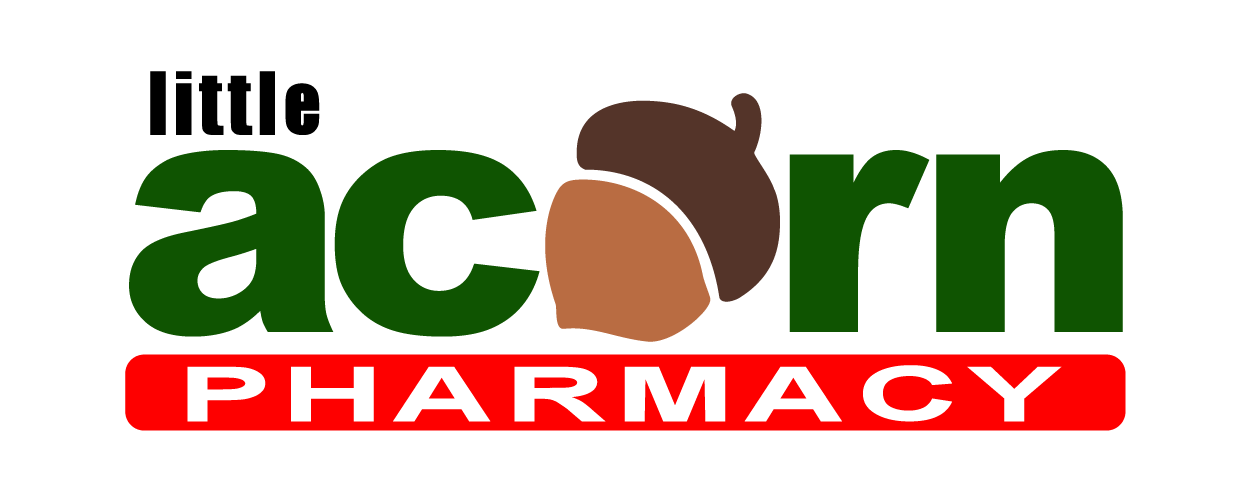7 Little-Known Facts About Low-dose Naltrexone
Little Acorn Pharmacy is proud to shed light on the lesser-known aspects of low-dose naltrexone (LDN). LDN, a medication gaining recognition for its potential in various medical conditions, offers promising benefits when used under proper guidance. Here are seven intriguing facts about LDN that you might not have known:
1. Mechanism of Action: While naltrexone is commonly known for its use in higher doses to treat opioid addiction, its mechanism of action at low doses is quite different. At lower doses (typically ranging from 0.5mg to 4.5mg), naltrexone acts as an opioid receptor antagonist, but paradoxically, it seems to modulate the immune system and promote anti-inflammatory effects. This modulation is thought to occur by temporarily blocking opioid receptors, leading to increased production of endorphins, which regulate immune function.
Source: Smith, J.P., Bingaman, S.I., & Ruggiero, F. (2016). Low-dose naltrexone therapy improves active Crohn's disease. The American Journal of Gastroenterology, 111(12), 1805–1807. https://doi.org/10.1038/ajg.2016.401
2. Versatility in Dosage: Little Acorn Pharmacy offers LDN in a variety of dosages, ranging from 0.5mg to 12mg capsules, as well as liquid formulations. This versatility allows for precise dosing tailored to individual patient needs, ensuring optimal therapeutic outcomes while minimizing side effects.
3. Autoimmune Disorders: LDN has shown promise in the management of various autoimmune disorders, including multiple sclerosis (MS), Crohn's disease, rheumatoid arthritis, and Hashimoto's thyroiditis. By modulating the immune response, LDN may help reduce inflammation and alleviate symptoms associated with these conditions.
Source: Cree, B.A.C., Kornyeyeva, E., Goodin, D.S., & Gelfand, J.M. (2010). Pilot trial of low-dose naltrexone and quality of life in multiple sclerosis. Annals of Neurology, 68(2), 145–150. https://doi.org/10.1002/ana.22006
4. Neurological Disorders: Research suggests that LDN may have neuroprotective effects and could be beneficial in neurodegenerative conditions such as Parkinson's disease and Alzheimer's disease. While further studies are needed to confirm these findings, preliminary evidence indicates a potential role for LDN in preserving cognitive function and slowing disease progression
Source: Liu, J., Wang, L.N., Jia, J.P., & Gong, Q.F. (2017). Low-dose naltrexone for the treatment of Alzheimer's disease: A systematic review and meta-analysis of randomized controlled trials. Neural Regeneration Research, 12(10), 1575–1581. https://doi.org/10.4103/1673-5374.215251
5. Cancer Treatment Support: LDN is being explored as an adjunctive therapy in cancer treatment. While it is not a cure for cancer, studies suggest that LDN may help enhance the body's immune response against tumor cells and reduce chemotherapy-related side effects such as pain, fatigue, and nausea.
Source: Berkson, B.M., Rubin, D.M., & Berkson, A.J. (2017). Revisiting the ALA/N (alpha-lipoic acid/low-dose naltrexone) protocol for people with metastatic and nonmetastatic pancreatic cancer: A report of 3 new cases. Integrative Cancer Therapies, 16(3), 215–227. https://pubmed.ncbi.nlm.nih.gov/20042414/
6. Safety Profile: LDN is generally well-tolerated when used at low doses, with minimal adverse effects reported. Common side effects may include vivid dreams, insomnia, or headaches, which often diminish over time. However, as with any medication, it is essential to consult with a healthcare professional before starting LDN, especially for those with pre-existing medical conditions or taking other medications
Source: Younger, J., Parkitny, L., & McLain, D. (2014). The use of low-dose naltrexone (LDN) as a novel anti-inflammatory treatment for chronic pain. The Clinical Journal of Pain, 30(2), 152–155. https://www.ncbi.nlm.nih.gov/pmc/articles/PMC3962576/
7. Off-label Use: While LDN is FDA-approved for the treatment of opioid addiction at higher doses, its off-label use in low doses for various chronic conditions is gaining attention within the medical community. As research continues to uncover its potential benefits, more healthcare providers are considering LDN as part of their treatment approach for patients with autoimmune disorders, neurological conditions, and chronic pain.
Source: Smith, J.P., & Field, D. (2017). Low-dose naltrexone therapy in multiple sclerosis. Medical Science Monitor, 23, 6264–6269. https://pubmed.ncbi.nlm.nih.gov/15694688/
In conclusion, LDN represents a promising avenue for the treatment of a wide range of medical conditions, offering a unique approach to modulating the immune system and reducing inflammation. As advocates for patient-centered care, Little Acorn Pharmacy is committed to providing access to personalized medications like LDN, tailored to meet the individual needs of each patient. However, it's crucial to consult with a healthcare professional to determine if LDN is appropriate for your specific condition and to ensure safe and effective use.

